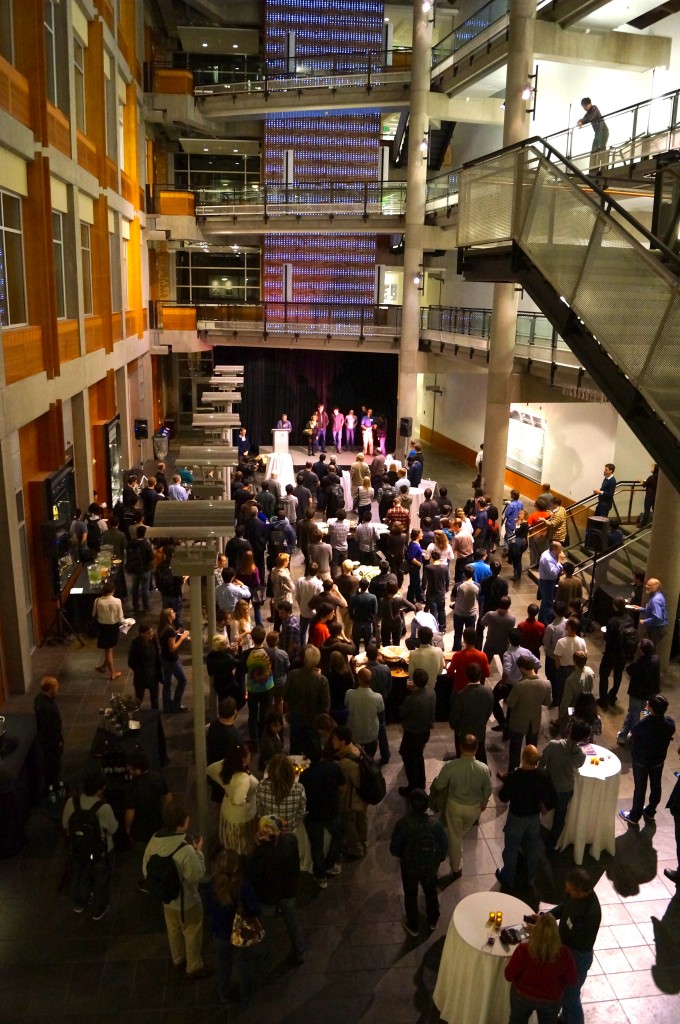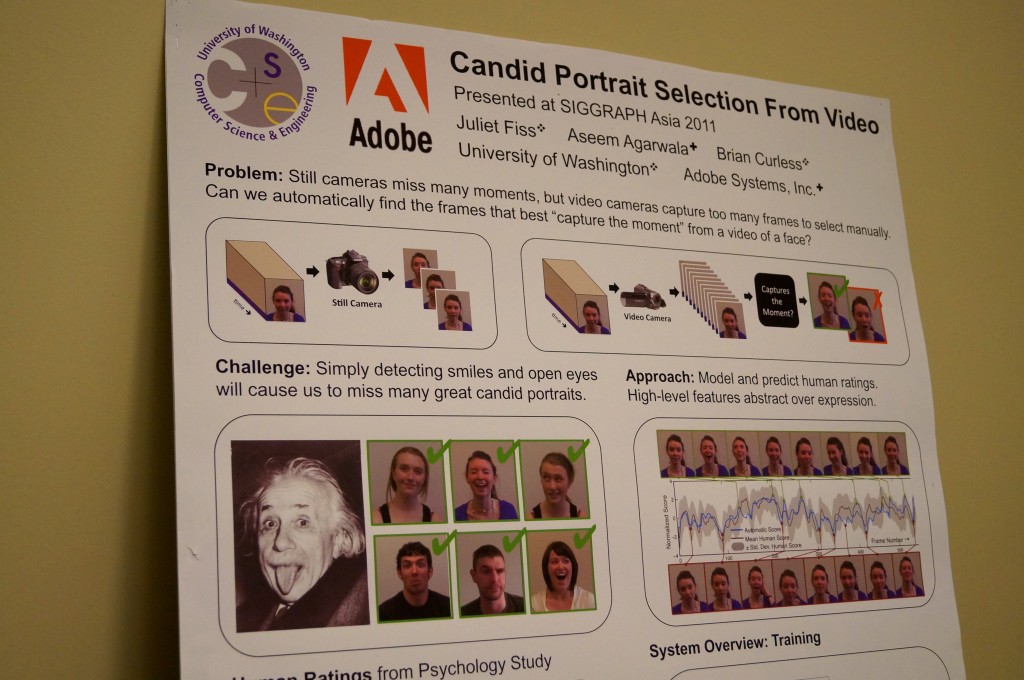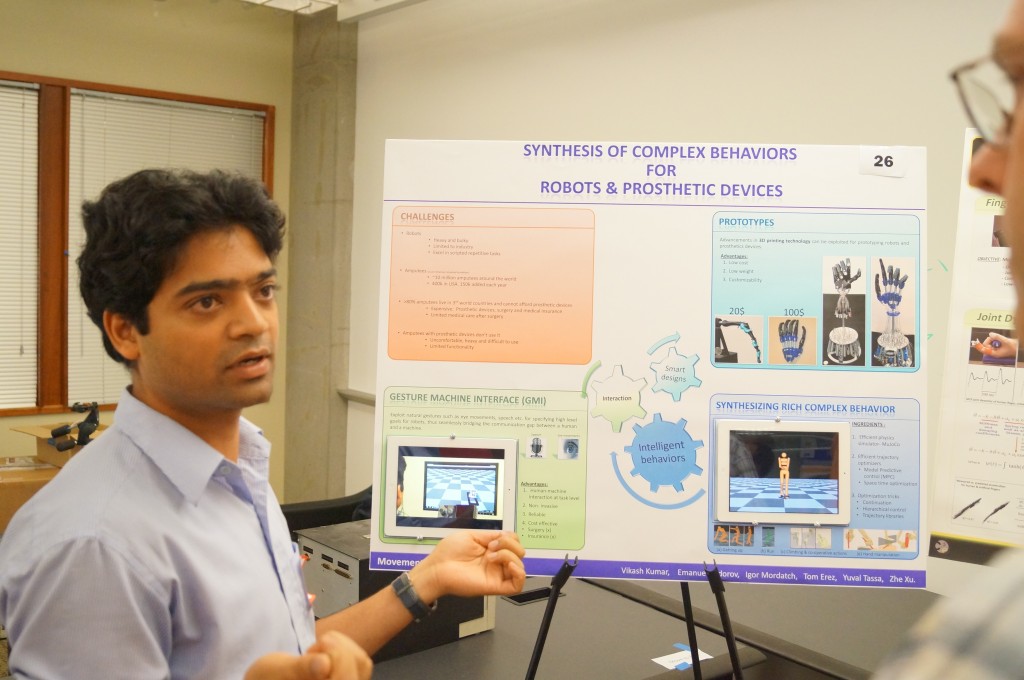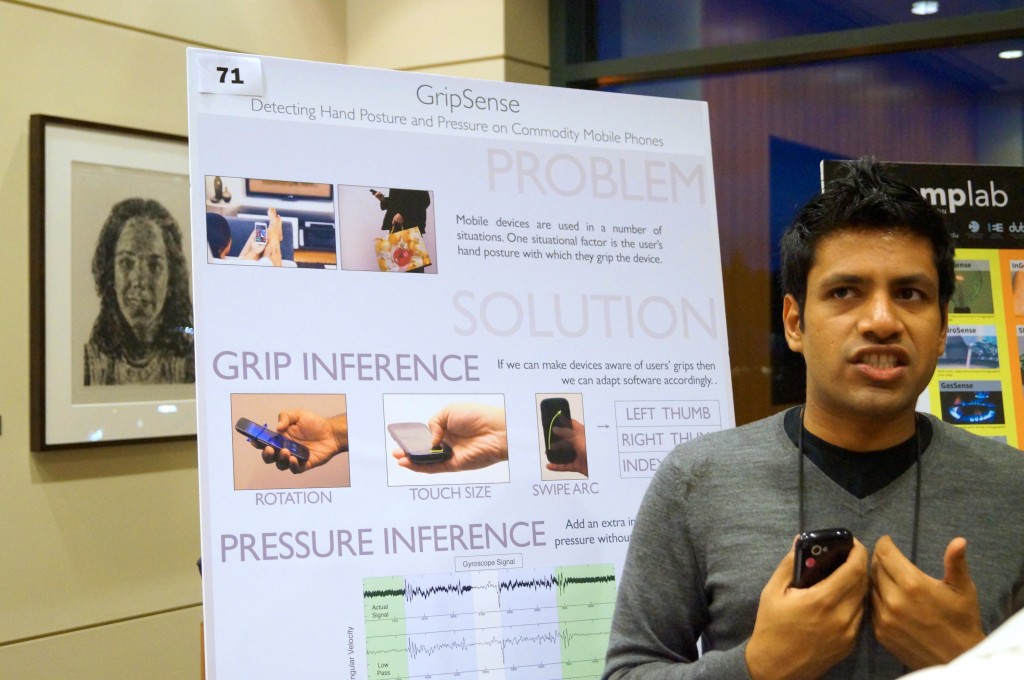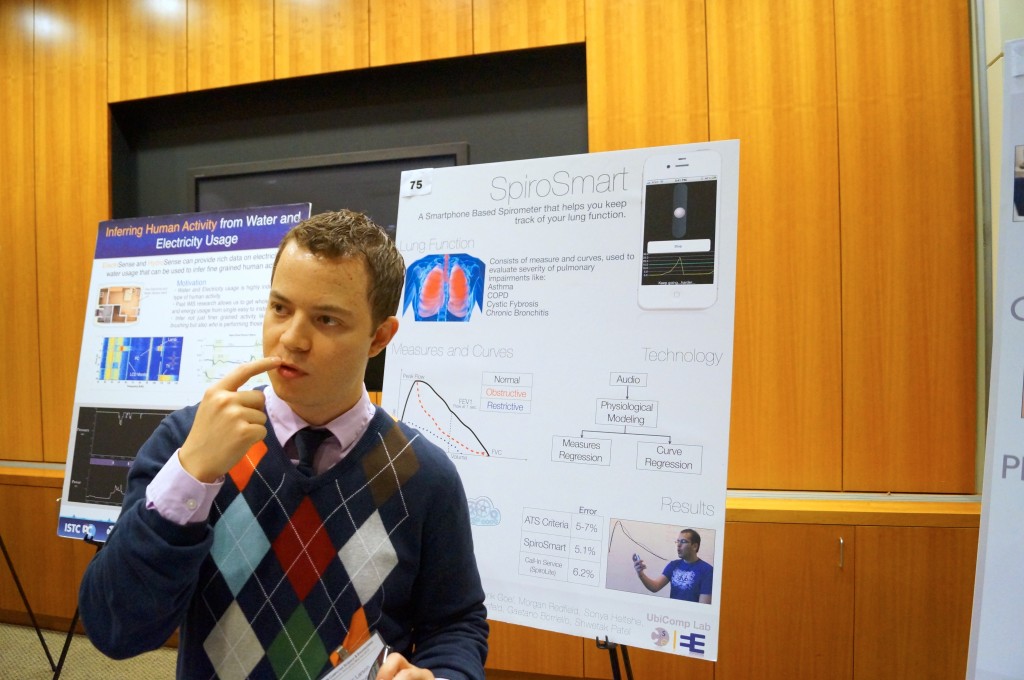
We all remember school science fairs — lots of posters, people and presentations packed into a large area. Consider Wednesday evening at the University of Washington Computer Science & Engineering Department something similar, but instead a souped-up version hosted by computer science buffs.

As part of the University of Washington’s Industry Affiliates Annual Meeting, 89 research groups made up of over 150 grad students set up shop in rooms within the UW’s high-tech Paul G. Allen Center to show off their latest work in a poster and demo session. Industry representatives, regional alumni and friends of the department were on hand to see everything from animated learning games to candid portrait selection derived from video.
Madrona Venture Partners has awarded the Madrona Prize for the past seven years to the research with the greatest commercial potential. This year’s $750 prize went to SpiroSmart, a mobile-based platform that uses a microphone to measure lung functions.
Eric Larson, one of ten graduate students working on the project, said that SpiroSmart can save you a trip to the doctor’s office and help diagnose lung problems. People with respiratory problems often go to the doctor and blow into a big machine, but with SpiroSmart, they can do this at home with a smartphone.
“We listen to the sound of the test and infer all of the different properties that have to do with flow: how much air you can breath out and how quickly you can breath it out,” Larson explained. “Those are all really good benchmarks for diagnosing different respiratory diseases and seeing how well managed your current treatment is.”
 Larson said the project has been in the works for about four years now and there is a plethora of published work demonstrating how there is no statistical difference between the clinical standard and the mobile device. This short video shows how it works.
Larson said the project has been in the works for about four years now and there is a plethora of published work demonstrating how there is no statistical difference between the clinical standard and the mobile device. This short video shows how it works.
Matt McIlwain, managing director at Madrona, handed out the award and was impressed with the potential of SpiroSmart.
“To use your mobile smartphone that you already have — which is practical and commercial —and be able to get very similar results compared to expensive at-home solutions we thought was extremely innovative and totally commercial,” he said.
Two runner-ups were awarded $250: FreeDOM: a New Baseline for the Web (Raymond Cheng, Will Scott) and a project titled Wireless Power for Left Ventricular Assist Device (Ben Waters, Scott Wisdom, Brody Mahoney, Chen Shi, Joshua Smith)
Check out photos from the event below.
- UW grad student Ankit Gupta shows off his research project at Wednesday’s Open House.
- UW grad student Eric Larson explains SpiroSmart, a mobile-based platform that uses a microphone to measure lung health.


